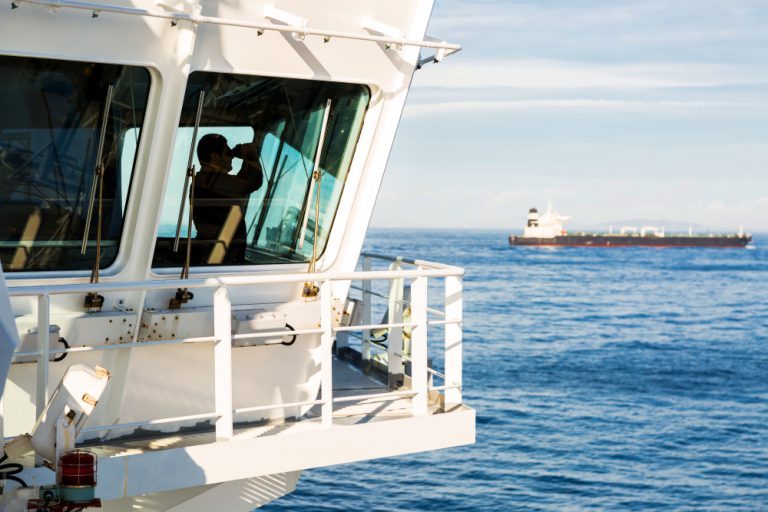
2021 has enshrined uncertainty as the new normal for offshore and shipping companies. Further waves of COVID-19 have once again tested their resilience to the limit, while growing demands for climate action have increased pressure to decarbonize. To survive and thrive in this fundamentally altered playing field, companies have a key ally: data.
The importance of vessel data management.
Those who had hoped for a return to the pre-pandemic normal in 2021 were bitterly disappointed. Cycles of unlocking, respites, and new restrictions have again brought uncertainty to a wide range of businesses along the supply chains. In addition to trends towards remote and flexible working which are causing in-depth transformations in large parts of the economy, the energy sector has also faced volatile changes in demand and prices. For those managing businesses, just like for those tackling virus waves, unpredictability is the new normal.
This year was also marked by attempts to unite world leaders around ambitious climate action, putting sustainability higher than ever on the agenda. COP26 also put the spotlight on what the private sector can do to contribute to global efforts and improve its own sustainability. Whether pledges by national leaders will translate into tighter regulations for shipping and offshore companies is a question of when, not if. Meanwhile, companies are under growing pressure to decarbonize, in the form of demands from customers, investors and financiers to demonstrate their environmental, social and governance (ESG) credentials. As 2022 dawns, sitting back and waiting is no longer an option. To “future-proof” their activities, companies will need to deliver tangible improvements to their environmental footprint – and importantly, measure and demonstrate their impact through facts.
Improving efficiency is more critical than ever to help companies succeed in this new normal – in terms of protecting ever-shrinking margins, building in the resilience to cope with unpredictable market conditions, and improving the sustainability of their operations. And any serious plan aimed at improving efficiency must start with data.
How can we use vessel data management to improve maritime operational efficiency?
The latest advances in technology enable operators to collect a wealth of real-time data on the position of vessels and their fuel consumption and operational patterns in specific weather conditions. This kind of information is truly the “new oil.” Our performance management service, Marinsights helps companies assess their starting point. It enables understanding potential improvements and taking the steps needed to deliver those efficiency gains.
The good news is that many of these gains will immediately impact bottom lines. For example, collecting and analyzing data can help identify sub-optimal use of engines and generators. It assists in the reduction of unnecessary journeys and ensures that vessels are deployed at optimal times. It reduces non-productive operations, minimizing consumption.
In the longer term, data can also better understand a company’s specific operational constraints and a clearer portrait of the fleet that would best suit its needs – informing key decisions on vessel numbers, types, and designs required to deliver optimized operations. All these data-driven changes make for leaner, smarter operations, making companies more resilient in the face of sudden changes in the market or the operating context.
Yet to achieve the best results, it is vital that the data collected is of the right type and good quality. This is why this year we took a major step at Opsealog, launching our very own onboard data collection service, Streamlog – which simplifies daily reporting onboard vessels by digitizing information, mitigating errors, and facilitating data entry for personnel.
Addressing the sustainability challenges
The beauty of digital transformation is that improving the efficiency of fleets and protecting the environment go hand-in-hand. Optimizing the daily operations of fleets means more can be achieved with fewer vessel movements, meaning less fuel has to be burned. Across the fleets we support across the globe, efficiency gains have already reduced fuel consumption and emissions by an average of 15%. During 2021, this translated into 11,879 m3 of fuel saved by the vessels that work with Opsealog. We are confident that we can deliver another 10-15% as our capacity to capture a wider range of vessel data improves.
Crucially, data-powered solutions enable companies to measure and verify their achievements in terms of emissions reductions. In an era when accusations of “greenwashing” are always looming, this accountability and data-based picture are essential to earn and maintain the trust of customers, investors, and the general public.
The industry’s willingness to reduce its emissions was also clear during ADIPEC, where we had the opportunity to meet leaders from the oil, gas, and energy sectors in Abu Dhabi in November. Throughout the event, it was clear that decarbonization is now a key priority for the sector, and companies are keen to use data to unlock new efficiencies in their fleets and deliver tangible emissions reductions. At Opsealog, we can’t wait to support these ambitions in the new year and help companies collect and analyze the data that will build a greener, more resilient future.
